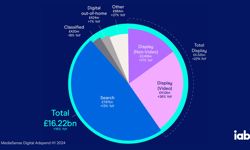Informa Telecoms & Media (ITM) expects the broadband experience in Africa to become increasingly nomadic with the number of broadband connections over cellular networks exceeding 250 million by the end of 2015, compared with 15 million fixed connections, of which 70 per cent will be DSL.
The ITM State of Broadband in Africa Survey was conducted online in June and July 2011 and quizzed over 250 respondents on the state of the market. When asked how important different communications service types are in influencing Africa’s economic development, the overriding response was that mobile telephony and broadband services are making the most positive impact on economic growth.
Africa’s communications market is mainly consumer-facing but, at a time when operators need to find new revenue streams, it is noteworthy that enterprise services are seen as highly important to so many of the respondents’ business strategies. Enterprise mobility services will play an important part in the future strategies of many operators, and especially in the region’s more developed markets.
In a competitive marketplace and there are few more competitive telecoms markets in the world than those in Nigeria, Tanzania and South Africa – it is important that carriers can differentiate either in terms of network quality or products. Informa believes that the digitisation of Africa can only become a reality if the customer experience of internet services is good.
A supply of local content is pivotal to this customer experience: The demand for highly-valued and relevant content is a major driver for Internet take-up. But the primary sources of content in Africa remain international and there is a paucity of local content available.










